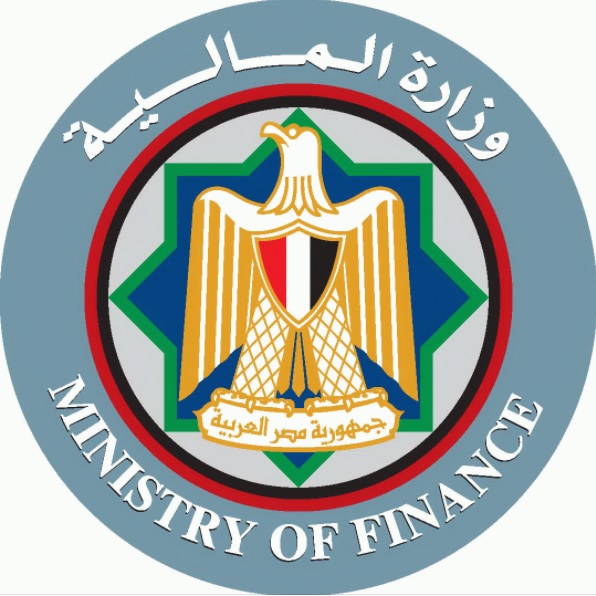Parliament’s last session witnessed a number of controversial laws discussed by
MPs, some of which were indeed approved and some were not. The proposal of
the polygamy law was among the strangest of them. The project proposed to
impose a fee of EGP 50,000 on marrying a second woman and a similar amount
in the case of divorce; the value of the fee increases to EGP 100,000 when
marrying a third wife.
A few months later, we also saw a female parliamentarian present a bill
proposing to impose a fine on “indecent” dress out of consideration to public
decency. We also saw the passage of the Nationality Law in exchange for a sum of
money in dollars.
The Nationality Law passed, and despite the fact that parliament did not pass
both the polygamy fee and the fine of “violating public decency,” these laws reveal
the nature of the ruling mentality of the state and its supporters in this absurd
period of Egypt’s history. The ruling elite believe that the Egyptians hoard a lot of
money and that they must be squeezed to the last possible pound.
This stems from the head of state’s own belief that the economic problem in
Egypt is nothing but purely monetary, and that when he does have enough
money, he can make Egypt a “bride” as he put it. Hence, the proposals for
“squeezing the Egyptians” became one of the most important approaches to
power, and the result was these crude proposals, even if they violated the
constitution or restricted an inherent right in Islamic law.
The state’s men did not try to find out the social, cultural, political, religious, and
economic roots of these problems, instead they resorted to a quick solution in
line with the ideology of the system, to which financial and security deterrence
are one of their most important mechanisms for settling matters on one hand,
and for satisfying the system’s appetite for money on the other.
Furthermore, the regime went beyond that, until the ability to “squeeze citizens”
became one of the most important criteria for assuming government positions
related to tax revenues, and I cite an example of this here: the current Finance
Minister Muhammad Maait, who succeeded Amr al-Jarhi. Al-Jarhi was a
conservative man, playing his role within the limits of what he was allowed to.
As for Maait, he has surpassed his predecessor’s ability to “excel,” meaning that if
he was asked to collect a certain amount of revenue this year, he would not be
satisfied with that, he would rather try hard to top it, but how can this be done?
Let’s impose taxes and fees on anything and everything, fuul carts, cafes, fines for
the late issuing of identification cards and raising the fees of any government
service in general and much more.
Someone may argue that the Ministry of Finance is not responsible for raising
fees related to other ministries, and that each ministry seeks to boost its own
income, which is partially correct. For on one hand, it supports the general idea
that we are trying to prove here, namely that the dominant public mentality
currently is how to collect as much money as possible.
On the other hand, the Ministry of Finance remains responsible for setting the
revenues intended to be achieved by every government agency in Egypt and
delivering them centrally to the Ministry of Finance. I have seen with my own
eyes how these entities object, expressing the lack of any possibilities that would
allow them to collect this amount of revenue, but the ruling logic in the ministry
was, “they say in our army: just find a way.”
Real estate tax
The real estate tax law was no exception to this framework, the rapidity in issuing
it and the circumstances of its implementation indicate that there is no aim
behind the entire matter except to feed the state treasury, which is a legitimate
and just right as long as it is implemented properly and includes a social
philosophy in the first place.
Egypt is considered one of the most unfair countries worldwide in the
distribution of wealth, although it is not the worst in distributing income.
According to the World Economic Forum, the Gini coefficient of wealth in Egypt
scored 91.7 in 2018, meaning that Egypt is approaching a state of absolute
injustice, hence the importance of the real estate tax, being the first real tax on
wealth in Egypt.
Especially considering the weak real estate tax rates in Egypt compared to other
countries, where it recorded 0.1 per cent of the total tax revenue in Egypt in
2018/2019 compared to 12.6 per cent in the United Kingdom, 12.4 per cent in
Korea, and 11.8 per cent in Canada for example.
But the law itself on one hand and the method of collecting the tax on the other
hand, raises many question marks, especially if we take into account the radical
difference in the Egyptian system compared to its counterpart countries that
really care for social justice.
First, citizens themselves had a fundamental voice in laying down the rules for
imposing taxes in all the international experiences. As for Egypt, this is
impossible with the nature of the current political phase. In addition, the tax
proceeds go to the local authority and are spent on developing facilities and
services in the same area from which the taxes were originally collected. In Egypt,
the law requires that the tax revenue be provided centrally to the Ministry of
Finance to be reallocated later on to any expenditure items where the ministry
sees appropriate.
Second, generalisation predominates over the Egyptian law, but in other
countries there is neither generalisation nor fixed rules for all. There is special
consideration and handling for each case. For example, the tax rates for cities and
villages that achieve high tax returns on income or value added are reduced.
In Texas, for example, the tax rate decreases with time passing since purchasing
the real estate asset.
In any case, the point here is that there are no set rules for everyone, and that
everyone pays according to his ability and special circumstances.
Third, this brings us to the real estate assessment process itself, which is the
biggest problem in the Egyptian case, for the absence of databases and the non-
registration of more than 85 per cent of Egypt’s real estate led to a discretionary
assessment by the tax officials, most of whom were only recently assigned from
other administrative bodies, most of whom do not have basics in accounting work
or fair tax assessment. This is what led to the emergence of many disputes
between owners on one hand and the tax authority on the other.
With the increase of these disputes, the ministry discovered that the application
of the law is a problem in itself, and it has begun to outwit the law by putting in
place many protocols that provide certain exceptions to anyone who proves to be
affected if they are among the influential stakeholders, such as hotel chains,
restaurants, and major factories, but for unimportant people, the grievance road
ahead is long.
Since the process of evaluating the price of a property is very complicated, the tax
authority has resorted to calculating the tax due based on the rental value of the
property, and here is another disastrous mistake. This converted the tax from a
tax on wealth to a tax on income, which makes it lose the social philosophy upon
which it was established in the first place.
As for other countries such as Germany, Canada and Korea, the process of
registering the property takes place at the same time as buying or selling it, which
facilitates the collection of the tax automatically. In addition to that, there are
committees and resident offices of the local government in every area which carry
out determining the value of their properties and update them every year.
Finally, there are some details that are illogical in the law like treating productive
activities the same way as residential activities. Not only that, but also imposing a
tax on empty land spaces without any exceptions, meaning that if a free plot of
land is attached to a factory, then it will also pay a tax on it, which is a clear
constitutional violation.
Moreover, from the beginning of 2014, the president issued a decree stipulating
that facilities belonging to the armed forces are outside the scope of the tax
application, or exempted from it to be more clear, which is an extra advantage
added to the benefits the army already has. This deprives the state of huge tax
returns since the military’s economic activities represent a large proportion of the
economy at the present time on one hand, and it violates the most basic rules of
fair competition with the private sector on the other hand.
As long as the state is run by the mentality of speculators and merchants, and as
long as there is a firm belief by the ruling elite that money, not the human
element, is the basis for progress, the series, “Squeezing the Egyptians,” will
continue and social injustice will increase, but the question here is: to what extent
will the Egyptians endure it?





Recent Comments